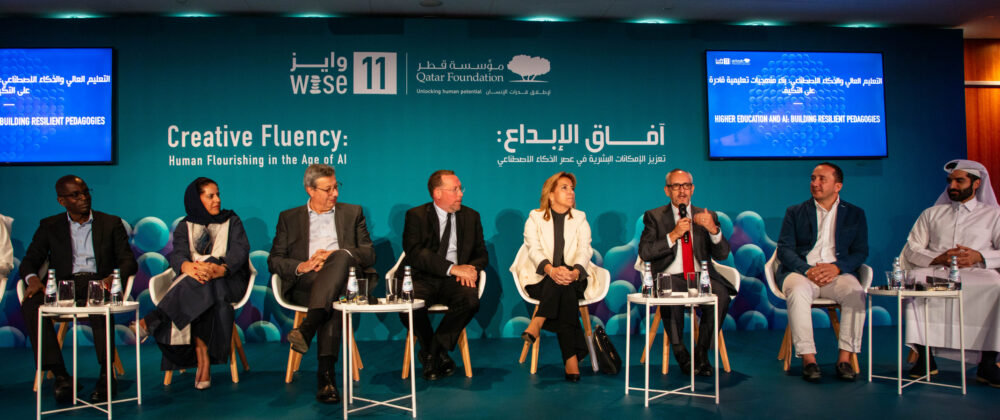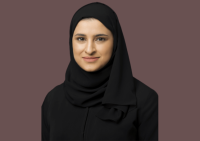Technology won’t replace jobs but will replace tasks, say experts at WISE Summit in Doha
Doha, Nov 30, 2023: Artificial Intelligence (AI) is disrupting the framework of higher education but the technology also presents a wealth of opportunities, said experts in a panel discussion at the 11th edition of the WISE Summit. The summit was held n Doha from November 28 – 29, 2023.
The roundtable at the global education conference hosted by Qatar Foundation’s education initiative WISE brought Francisco Marmolejo, President of Higher Education, Qatar Foundation (QF) and nine experts to discuss the topic of ‘Higher Education and AI: Building Resilient Pedagogies’
“AI, in a way, is seriously disrupting the business model of higher education,” said Marmolejo. “It is disrupting that black box, which is the classroom – because a classroom is no longer just a classroom; it can be any place, anytime, with any type of player. There is a significant level of opportunity.”
He emphasised that rather than waiting to see what happens with AI, concrete actions should be in place now – rather than tomorrow – to address challenges and seise opportunities. “It’s not for others to say what to do; it’s for us to say what to do, and to act,” he said.
David Brown, Director, Executive Education, Imperial College Business School, spoke about the future of students and the skills required – emphasising that AI will not replace jobs but rather ‘tasks’.
“Technology will replace tasks, as a job is just a bundle of tasks,” he explained. “As organisations change, and as this technology becomes available, we need people who understand these technologies – frankly, that’s the easy part, although that’s also the part we’re all stressing about.
“We need people who can stitch technologies together, and that’s a much more sophisticated skill and requires curiosity and continual learning. And given the fact that tasks are going to change, the challenge for us is how we re-engineer organisations and jobs.
“That requires leadership skills, change skills and personal skills. That’s the part we’ll be looking at our universities to develop.”
According to Husa Alangari, Assistant Professor of Instructional Design & Technology, Princess Nourah bint Abdulrahman University, it is important to engage stakeholders – from students and faculty to administrators, ministries and the community – and to make sure that students are prepared for the future workforce, with the relevant skills, competencies and knowledge.
She also explained how ethical considerations need to be taken into consideration saying “AI does not work in the same way in every context, and in every culture, in every society. What works in the US and Canada may not work in the GCC countries, and may not work in China or Japan, for example.
“If we really want to be able to have students and our future leaders implement and use AI effectively, we need to get them ready, engage and involve them in the process, and make sure that we have a holistic view of how learning is occurring, how they are developing their skills.
“Re-skilling and upskilling faculty is one way, and cross-skilling as well. We need to take a look at all the options that we have available in order to prepare the future workforce.”








